News
KUBS News
Data Speaks the Language of Management… KUBS DT Day
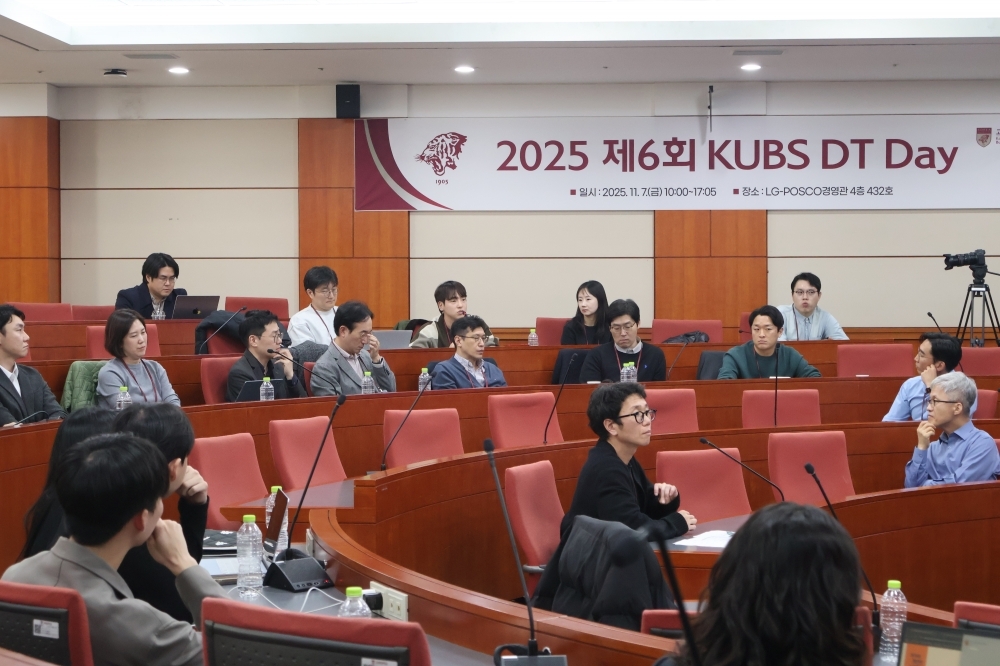
On Friday, November 7, the 6th KUBS DT Day, hosted by the Center for Digital Transformation & Business (CDTB), was held at the LG-POSCO Hall of Korea University Business School. KUBS DT Day is an event designed to identify and share new business models for the corporate and public sectors in the era of digital transformation. Through this event, KUBS aims to provide members of Korea University with business insights into digital transformation and to establish a virtuous cycle of academia–industry cooperation through mutually beneficial partnerships with corporations.
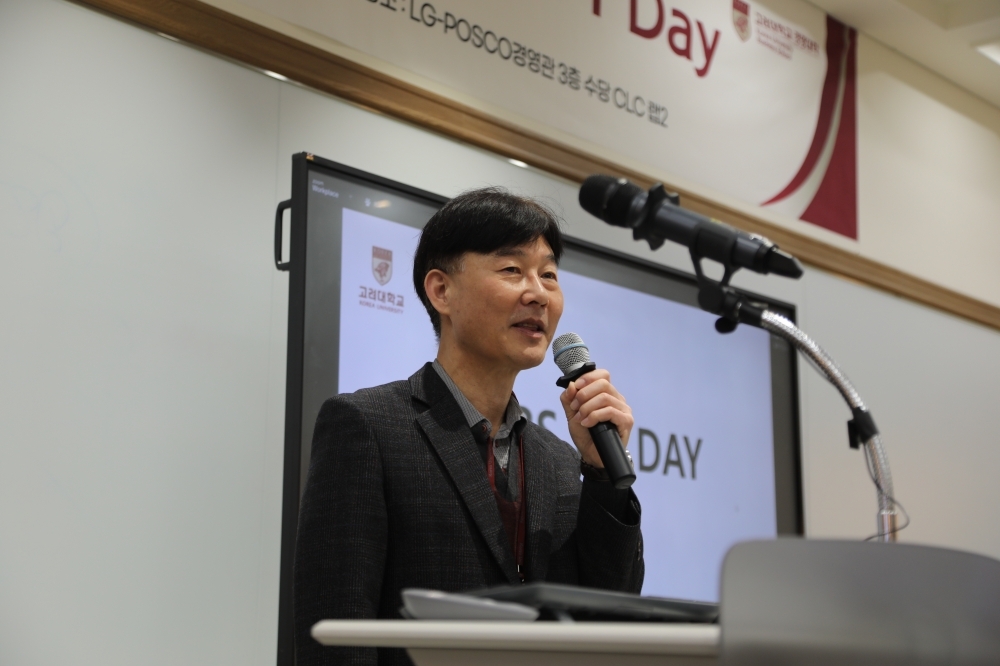
In the morning, the “DAB (Data Analytics for Business) Competition Finals” took place, followed in the afternoon by the “Capstone Project Midterm Presentations.” The DAB Competition is designed to address real-world social and industrial issues through data analysis. This year, three teams out of eight advanced to the finals and delivered their presentations. Professors Kyung Sam Park (Director) and Jeunghyun Kim served as judges.
The first presenting team, “Ttasum,” proposed an “Integrated Weather and Walking Environment Safety Map” for the elderly. By integrating environmental data such as heat waves, cold waves, and road slopes, the service guides safe walking routes for senior citizens. Simulation results showed that it could reduce accident risk by approximately 5.6%. It was an exemplary case of using data not merely for navigation but to realize the principle that “everyone has the right to move safely.”
The team “HippoKUrates” focused on the issue of re-transfer of emergency patients—commonly known as “emergency room bounce-backs.” By combining medical data with a RAG-LLM (retrieval-augmented large language model), the team implemented an emergency medical resource recommendation system that analyzes patient symptoms and hospital capacity in real time. Designed on the basis of interviews with active paramedics and medical professionals, the model received high praise from the judges for its technological approach to addressing the societal challenge of reducing the golden hour for critically ill patients.
Lastly, the team “TtareungPang” proposed a demand-based redistribution algorithm to address the imbalance in the rental and return of Seoul’s public bicycles, “Seoul Bike.” By incorporating rental failure data along with variables such as weather and time of day to design optimal truck relocation routes, the model enhanced not only operational efficiency but also citizen satisfaction. It served as a strong example of how data can be leveraged to improve the quality of public services.
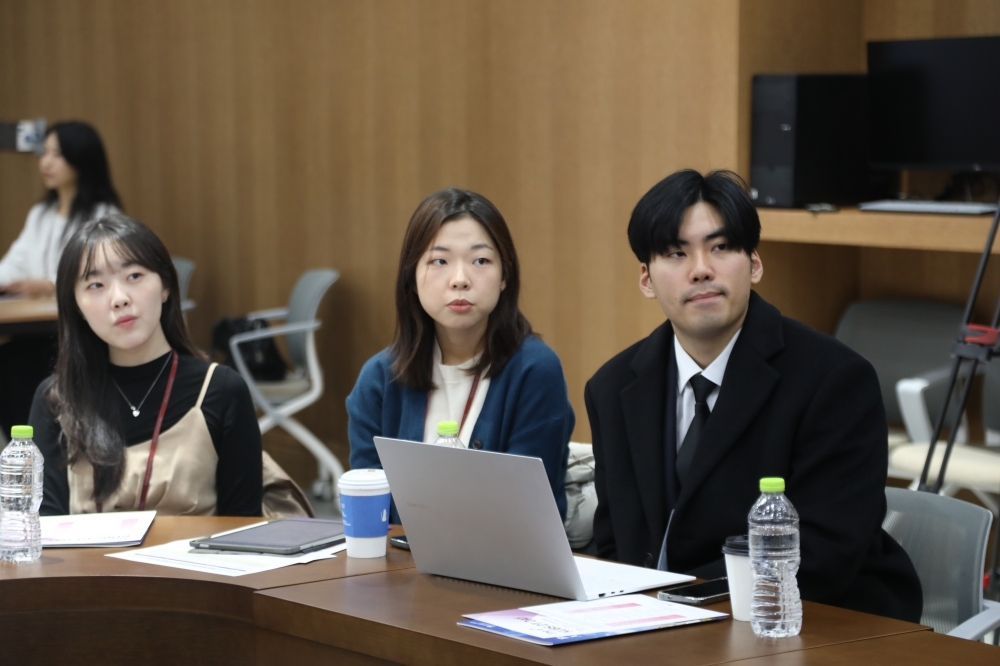
The judges remarked, “All three teams remained committed to the essential question of not just how to use data, but for what purpose it should be used,” and added, “Their clear problem definition and incorporation of on-the-ground insights were particularly impressive.” The grand prize was awarded to “HippoKUrates,” while “Ttasum” and “TtareungPang” received excellence awards.
The “DAB Competition” is not merely an academic contest but serves as a testbed for addressing social issues through data analysis and as a microcosm of future-oriented business education. Participating students went beyond collecting and analyzing data, embodying the academic mindset of “understanding and transforming the world with data.” This year’s event stood as a vivid illustration of the Korea University Business School’s ideal of “Practical Wisdom.”
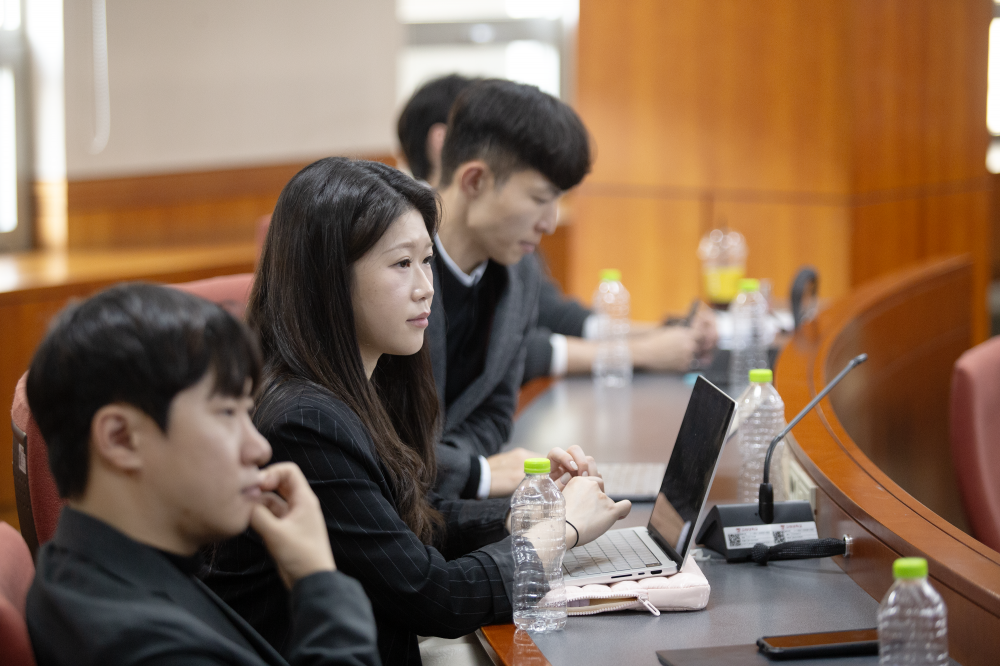
In the afternoon, under the theme of analytical thinking that drives digital transformation, the 6th cohort of MSBA students presented the interim results of their corporate collaboration projects.
In his opening remarks, Associate Dean for Planning Byung Cho Kim stated, “DT Day is a process of understanding the world through data and discovering new possibilities within complex challenges.” This year’s presentations featured 20 students working in collaboration with seven organizations: Hyundai Motor Securities, Hyundai Motor Company, LG CNS, Hyundai Home Shopping, Hyundai Department Store, PwC, and LG Household & Health Care Co., Ltd.
▲ The Hyundai Motor Securities team analyzed the financial characteristics of the second generation of baby boomers and developed a retirement pension product recommendation algorithm.
▲ The Hyundai Motor Company team designed a promotion-based customer segmentation model to strengthen retention among Blue Members customers.
▲ The LG CNS team introduced a graph database–based AI modeling tool for consultants, while
▲ the Hyundai Home Shopping team proposed a new content operation strategy that integrates broadcast identity preservation with data efficiency.
After the break,
▲ the Hyundai Department Store team presented a store- and product-level demand forecasting model to improve inventory management efficiency,
▲ the PwC team showcased a model that automatically generates consulting reports using a multi-agent system, and
▲ the LG Household & Health Care Co., Ltd. team implemented an AI decision-making framework capable of developing brand strategies using consumer review data.
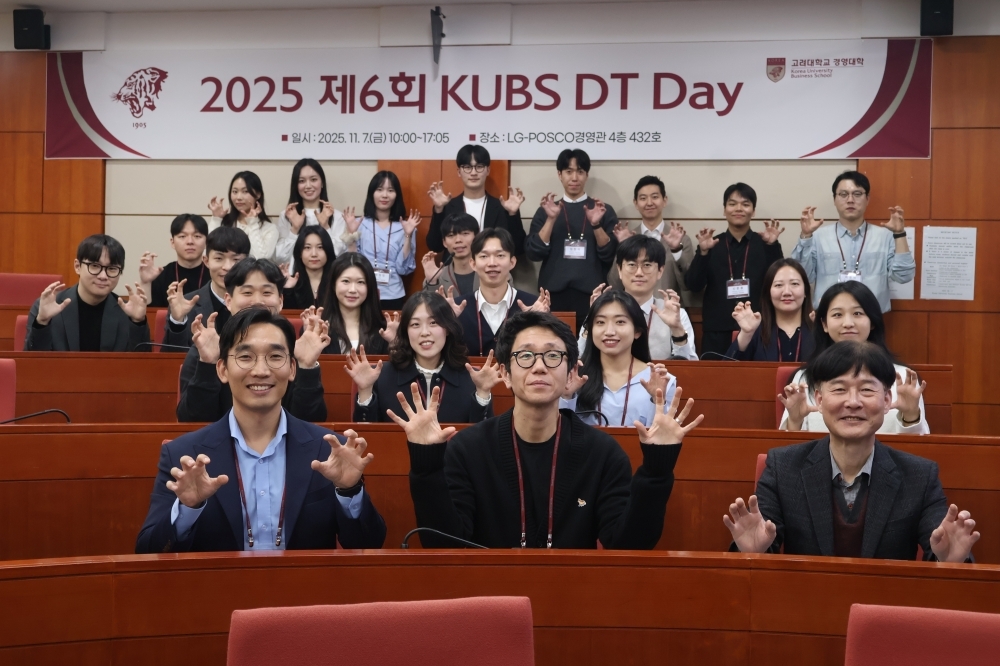
Following the presentations, Professor Jeunghyun Kim, Director of the BA program, remarked, “This year’s projects have clearly advanced in their ability to handle industry data,” adding, “What stood out was the effort to redefine problems through data and to translate insights into real business decision-making.”
Through this process, students experienced firsthand how data is transformed into insight and insight into strategy. Over approximately two and a half hours, each team’s analytical process and practical proposals were delivered in a dense and engaging manner. While students gained direct experience in how data evolves into strategy, partnering organizations and faculty explored the potential for applying these new ideas to real industry settings.
Even after the event concluded, the presenting students and representatives from partner organizations continued to exchange ideas freely and share feedback. On site, participants remarked that “data analysis is becoming the language through which industrial problems are rewritten.” True to its name, DT Day concluded as a day in which data expanded the boundaries of thinking.


